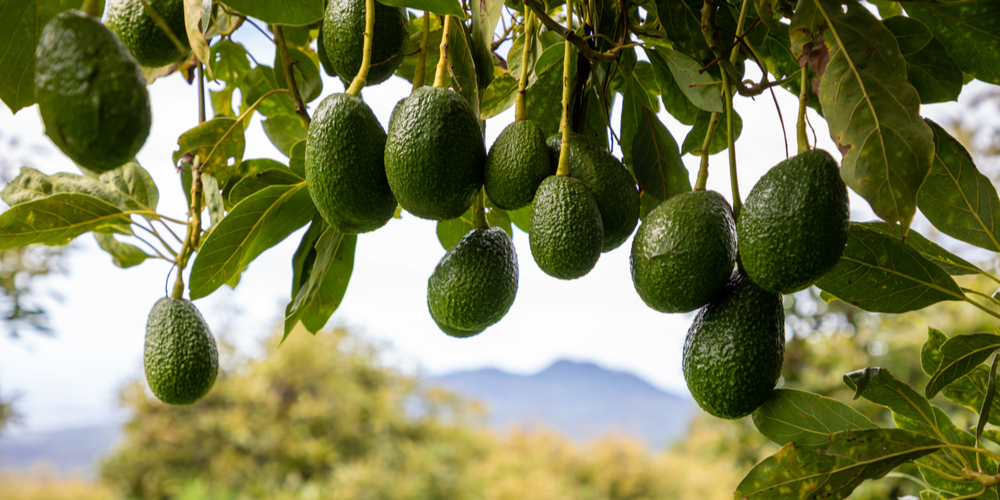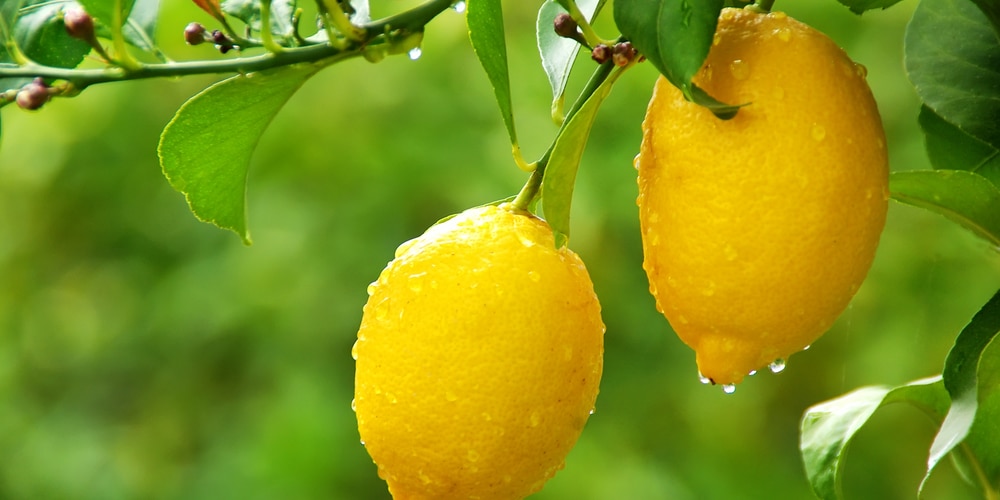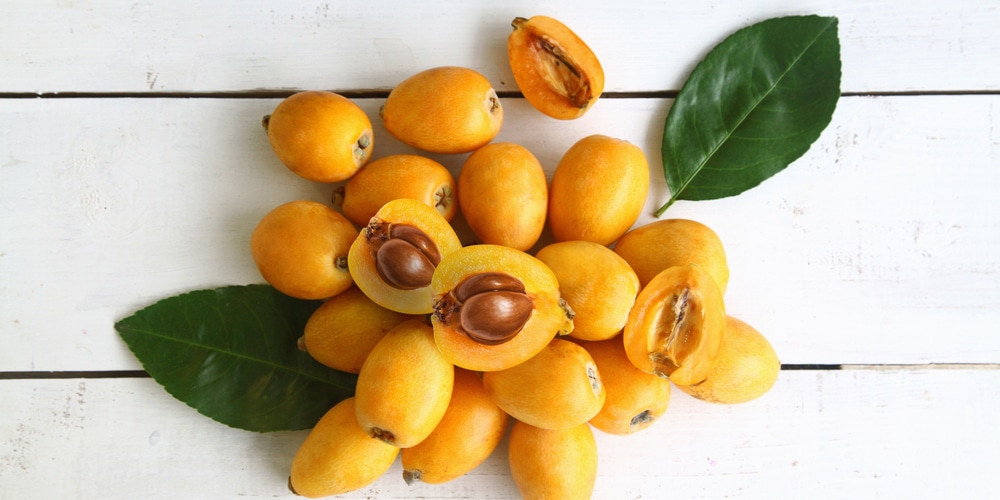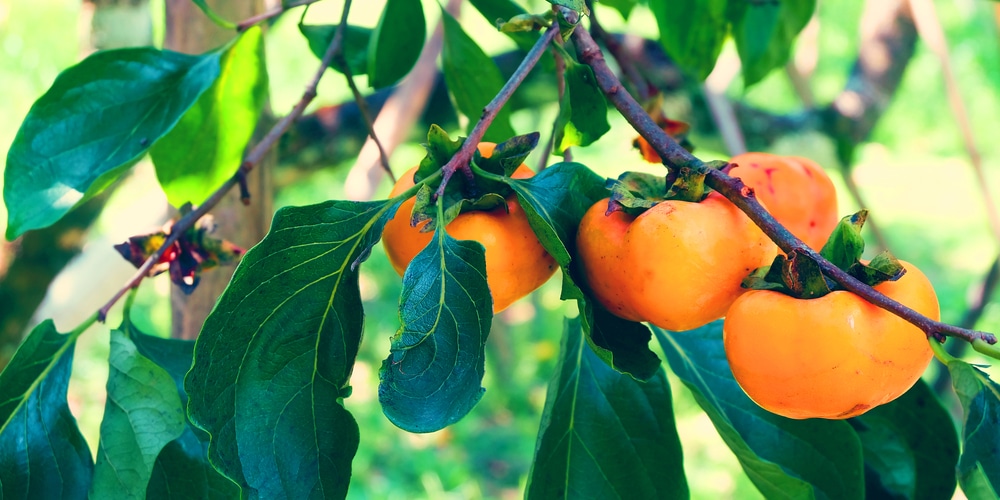Growing fruit trees is satisfactory. The reward of all your efforts in keeping your plant healthy will be a constant supply of delicious fruits: isn’t that cool? If you grew fruit trees before, you probably know how crucial it is to meet their requirements. As you may expect, not all fruit trees need the same conditions.
However, the classic fruits we often think about need winter chill to produce harvests. So, it might not be possible to grow apples, pears, peaches, and cherry in zone 9, where temperatures rarely get as cold as to ensure fruit production by these trees. But don’t let that stop you from planting a fruit tree! If you live in zone 9, there are several varieties you can choose for your garden!
To learn more about the options you have at your disposal, you’ve landed in the right spot. We included a list of the best fruit trees to grow in zone 9 in this essential guide.
Best Fruit Trees to Grow in Zone 9
USDA hardiness zone 9 includes California, Texas, Florida, and Arizona. The region rarely touches temperatures below 20F. Here, winters are mild and summers long, perfect for growing fruits that thrive in the warmth.
Avocados
Who doesn’t love avocadoes? Native to Central America, these delicious tropical fruits are hardy to zones 8 to 11. They are ancient too: studies show they have been around since (at least) 500 BC!
You can use them in smoothies, make guacamole with them, or add avocadoes to salads and toasts. If you live in zone 9, go for the Mexican and Guatemalan varieties, which don’t mind the region’s mild winters. Plant your tree in well-draining soil and ensure it gets at least six hours of direct sun per day. Don’t forget to water your avocado tree at least once per year. Under ideal conditions, these plants can grow up to 60 feet tall.
It is not challenging to grow avocadoes in your garden with the proper considerations. However, you will have to be patient before getting the first fruits: most trees won’t give you avocadoes until three to five years.
Citrus Fruits
While you can’t grow staple fruits like apples and pears, zone 9 provides you with the conditions to plant lemons, oranges, and limes in your garden. And who doesn’t want freshly squeezed juice all year round?
Make sure your soil is rich and well-draining. You may have to make amendments to increase water retention and loosen your ground. While most citrus fruits generally produce harvests in the winter, you can plant lemons and lime to receive fruits no matter the season. If you prefer grapefruit or pomelo, keep an eye on the weather forecast. If there is some threat of frost, add some extra protection.
Fig Trees
The delicious summer fruits are perfect for zone 9. Plus, the tree looks stunning in any setting and produces shade that makes your garden more attractive, especially during the hot days of summer. Native to Western Asia, figs do well in Mediterranean and subtropical climates. You can grow LSU Gold and Purple in zone 9 for the best results.
While most varieties are self-fertile, you might get larger crops with more than one tree in your garden. If you don’t have space for two fruit trees, don’t worry. Plant adequate companions that attract pollinators to increase your chances of getting plenty of figs.
Locate your tree under full sun, and don’t forget to add a fertilizer high in nitrogen every four weeks during the spring. Water your tree moderately for rich crops. As long as the soil is well-draining, figs adapt to most conditions. Add mulch around the base to increase water retention and improve the nutrient content. Doing so will also prevent weeds and keep your tree healthy overall.
Loquat Trees
Loquat trees are stunning plants that produce delicious fruits that taste something like peaches, mango, and citrus. If that sounds appealing to you, you should consider planting one in your garden.
These trees perform well in zone 9 and don’t require much attention from your side. The evergreen loquat tree also works as a beautiful ornamental to add character to your garden. Plus, you’ll have the perk of getting plenty of fresh, nutritious fruits. Why ask for more?
Plant your loquat tree under full sun or partial shade. If you are looking for something that will withstand even dry summers without minding about winters, this might be your best choice. Loquat trees don’t need much water to survive and will be satisfied with about 25 to 40 inches of rainfall per year. If your region isn’t wet, try to water them when they get dry.
Ensure your soil is well-draining, and add some mulch to increase water retention and improve the nutrient content. Keep an eye out for fruit flies and scale insects. If you see something off with your plant, take prompt action. Taking adequate measures might prevent your tree from suffering severe damage.
Persimmon
Persimmons are native to Asia but well suited to grow in hardiness zone 9. Planting these types of trees is an excellent way to explore something different for your garden. If temperatures get low, don’t worry. You can find native species tolerant to cold up to zone 4.
These trees do best in slightly acidic soil. Even better if sheltered from the harsh rays of the sun. Ensure the drainage is good and add mulch around the tree’s base to increase water retention and nutrient content. If you live in a dry region, water your tree regularly, especially in summer and spring. The good news is that most varieties of persimmon trees are self-fruiting, meaning you won’t have to plant more than one in your garden.
Best Fruit Trees to Grow in Zone 9: The Bottom Line
As you can see, there are various fruit trees you can plant in your garden if you live in zone 9. Adding any of them will help you increase the aesthetic appeal of your property and get a constant supply of delicious snacks. Always make sure to check each plant’s requirements before planting a tree in your garden. You may have to make some adjustments, but your efforts will be worth it in the end!
Related Article: The Best Fertilizer For Fruit Trees




